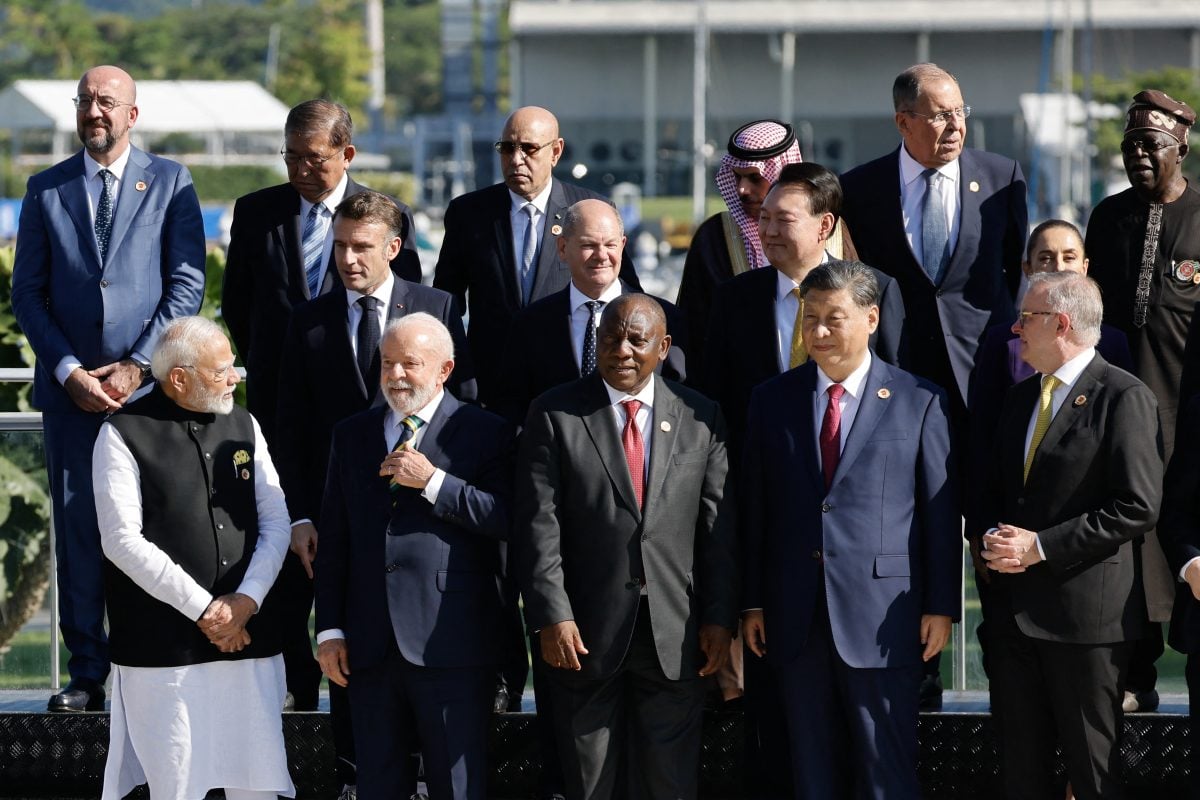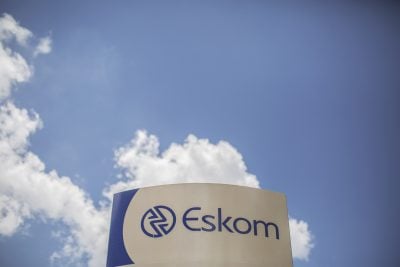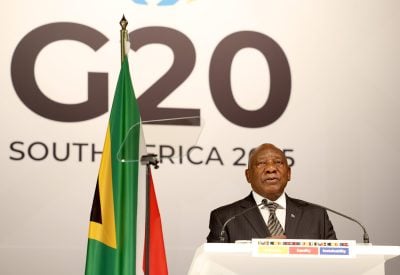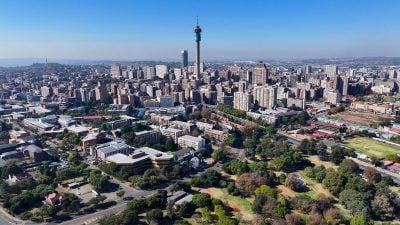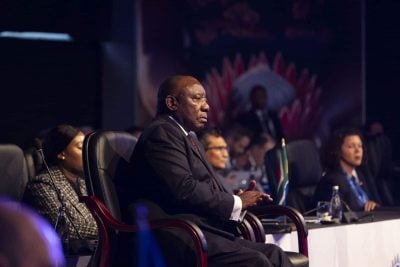South Africa occupies a unique diplomatic and economic position that allows it to act as a bridge between developed economies and the Global South, something it is leveraging during its G20 presidency to drive its vision of a fairer and more equal world.
The country has a dual identity as a developing African state that is regarded as an emerging market but is also a participant in global forums dominated by advanced economies, including the G20.
Analysts say this enables a credible “two-way translation” that enables it to communicate Africa’s development concerns within Western-led institutions and advocate pragmatic cooperation with states that are part of the Global North.
South Africa has leveraged this to influence global governance reforms, champion development priorities, and mediate between competing geopolitical interests. It does so alongside heavyweight multilateral actors such as the African Development Bank.
Its long membership of BRICS, before the recent accession of new nations to the bloc, has positioned it as a champion of the Global South. It has enabled the country to introduce African development priorities into BRICS agendas, expand outreach with African states and to position the bloc as being complementary, rather than confrontational, with Western institutions.
The member states of the organisation, despite their varied sizes and economic heft, also align themselves with the Global South agenda.
The G20 has played a key role in reflecting South Africa as a balanced presence in a multipolar world, while the country has also had consistent strategic engagement with the G7 over the years and is one of a small number of non-G7 countries that has been regularly invited to G7 outreach sessions.
South Africa also plays a moderating role between regions at the World Trade Organisation, pushing for the rules to work for development rather than against it.
In his speech marking the 30th anniversary of the WTO, President Cyril Ramaphosa pointed out that the inclusivity promised by the multilateral trading system and by the Doha Development Round had not materialised for many. Developing countries that account for most of the WTO’s membership remain locked into the lower end of global value chains.
These challenges have been exacerbated by unilateral and protectionist measures being implemented by some advanced economies that are outside the agreed-upon multilateral framework, he said.
“It is incumbent on us all to ensure that the multilateral trading system is strengthened, or we risk the encroachment of a global trade regime based on power dynamics.”
Divergent interests
The country uses its engagement with powerful economies of the world to drive the integration of African priorities such as the reform of global financial institutions, climate finance and the Just Energy Transition, debt sustainability for low-income countries and trade and industrialisation efforts.
South Africa has tried to position itself as non-aligned, not wanting to be forced to choose between China and the United States, for example, or between developed regions and emerging markets.
This has been something of a tightrope as the lines get drawn ever deeper on contentious issues around the globe and South Africa battles to keep an even keel, particularly as it faces its own internal challenges in this regard.
South Africa retains close relationships with countries such as Russia, Cuba and Palestine, with which it has long historical ties, but which are frowned upon by main of its Western trading partners.
And many of those disapproving of its choices are among its main trading partners, which include the US, European Union nations and the UK.
For some, this highlights its ability to straddle many divergent interests, adding to its credibility as an interlocuter between regions, issues and interests.
Cedric de Coning, a research professor with the Norwegian Institute of International Affairs (NUPI), writes, “As a country that is a democracy, with liberal values enshrined in its constitution, and at the same time a country that feels it is a victim of the inequalities of the international liberal order, South Africa is uniquely placed to be a bridge-builder between the East and West, and between the North and the South.
De Coning posits that South Africa thus wants to change aspects of the liberal order, which has been designed to benefit the developed world. These include the western bias inherent in multilateral institutions and in the broader financial architecture, which is weighted against Africa and other developing regions.
South Africa and Africa
Africa remains central to South Africa’s foreign policy and is increasingly relevant as global economic fragmentation intensifies. It is also its position as the most sophisticated economy in Africa that has attracted the interest of outside actors, with its stated political non-alignment and history of negotiating successful outcomes on difficult issues being additional factors.
It has brought Africa along on its journey as the host of the G20 in 2025, not just in terms of the relevance to the continent of issues being raised at the year-long rollout of meetings, but also because it is using this high-profile platform to raise Africa’s voice.
Behind the scenes, it worked in the past to push for the African Union’s permanent G20 membership, achieved in 2023 and currently assumed by the current chair of the AU, Angolan president João Lourenço.
It also pushed for Nigeria to become a member of BRICS and for the country to host a G20 meeting, which was held in Abuja earlier this month.
This is not just about politics. It uses its advanced business sector and financial and logistics capabilities to highlight opportunities in Africa, advocate for stronger North–South investment partnerships and promote intra-African trade as a platform for regional integration. This also strengthens Africa’s bargaining power with developed markets.
Constraints
The role of bridge-builder is ever more challenging in a fractured global environment. But the challenges faced by South Africa in its favoured role as a bridge builder in international affairs are not just about international issues.
Its domestic challenges which are often out of step with the vision it is espousing for the world. While some may form part of the very issues it is raising on the global stage, others are within its grasp to solve. These include slow economic growth, logistics and energy constraints as well high levels of joblessness and inequality.
As noted above, there are also questions about South Africa’s geopolitical ambiguity, most recently regarding its positions on the Russia–Ukraine conflict and issues in the Middle East, notably Gaza.
And even though South Africa has worked hard to position itself as a key voice of the Global South, there is rapidly rising competition from other middle powers such as Kenya, Nigeria, Egypt, Saudi Arabia, Turkey and the UAE, which also have economic heft and seek to represent African or Global South interests with other regions.
The notion of South Africa as being the leader or representative of Africa is also not accepted by many other African countries, even though the country has long been perceived by global powers as a gateway to and leading representative of the continent.
South Africa has moved to address this by ensuring that the continent uses its own opportunities in global forums and groupings to boost the fortunes of the rest of Africa and give the continent a voice.
 Sign in with Google
Sign in with Google 